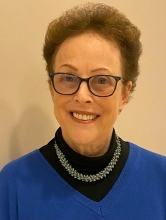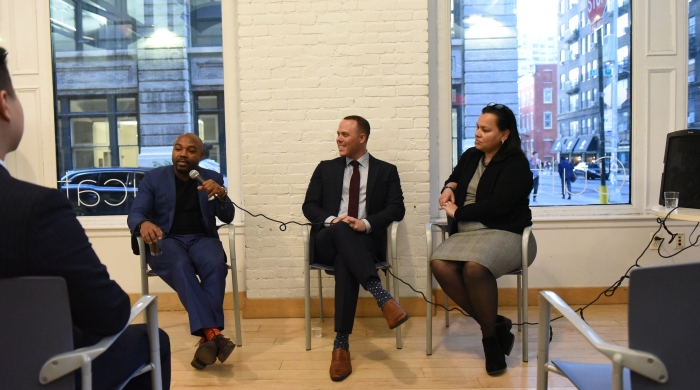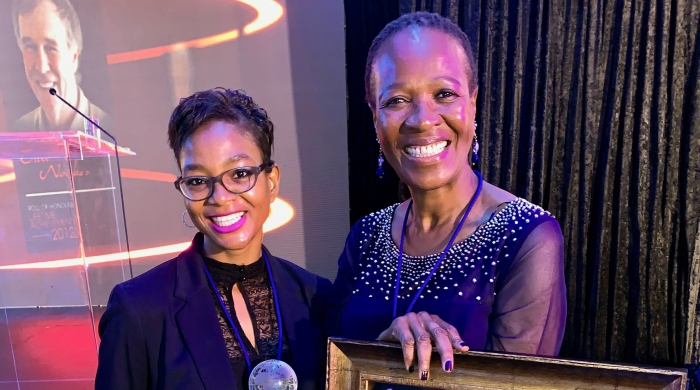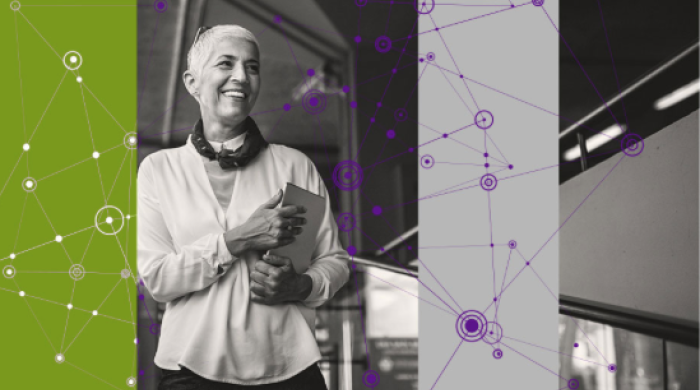"Higher education is often viewed as the great engine of opportunity and economic mobility. With mobility research evolving, there is a consistent need to investigate the various mechanisms on an individual, institutional, and governmental level that both help and hinder progress," said Ann Marcus, professor and director of the Steinhardt Institute for Higher Education, introducing a day-long inquiry into issues of access, student success, and the impact of higher education. Held on October 25, 2019, the event brought scholars, faculty, and higher education stakeholders together for two events designed to deepen the conversations about stratification and mobility in higher education.
The event began with a breakfast conversation featuring education thought leaders, New York Times columnist David Leonhardt, and higher education economist Susan Dynarski.
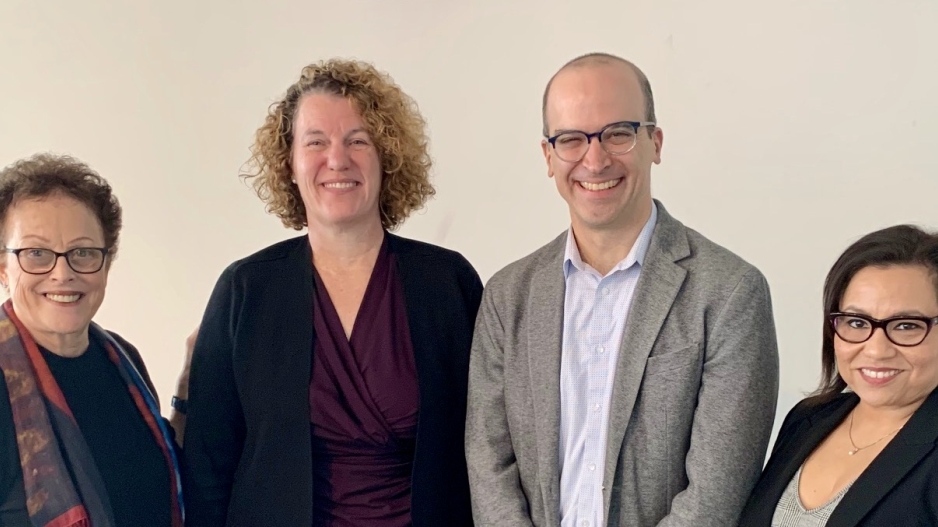
Ann Marcus, Susan Dynarski, David Leonhardt, and Stella Flores took part in a breakfast conversation about college access.
Higher education is often viewed as the great engine of opportunity and economic mobility.
Among the topics discussed were college access for low-income students, national and institutional financial aid policies, athletics, and affirmative action. On the issue of "free college" which has gained attention in the presidential election, Dynarski noted that the concept of free education is powerful, as long as institutions receive the funding necessary to provide quality education. David Leonhardt reflected on the need for more research around what is happening "underneath the hood" of colleges. He agreed with Dynarski that poor quality, free college would only heighten existing social inequality.
In the afternoon, the conversation continued at a panel titled, The New Mobility in Higher Education: Does a College Degree Matter. The discussion featured Paul Attewell (CUNY Graduate Center), Michal Kurlaender (University of California, Davis), and Susan Dynarski (University of Michigan).
Advances in data analyses and inclusion of new populations in large data sets show us that mobility research is an ever-evolving field of study.
The event was moderated by Stella Flores, associate dean for faculty development and diversity. Flores, who directs the Steinhardt Faculty First Look program, noted that advances in data analyses and inclusion of new populations in large data sets show us that mobility research is an ever-evolving field of study.
"We need to constantly interrogate our responsibility to provide educational opportunity for the underserved and these scholars represent the best interdisciplinary examples of how to do this," Flores said. "They teach us that a commitment to research should always be a priority because it informs practice and policy. We use this information when we go into the world to create, apply, and innovate better solutions."
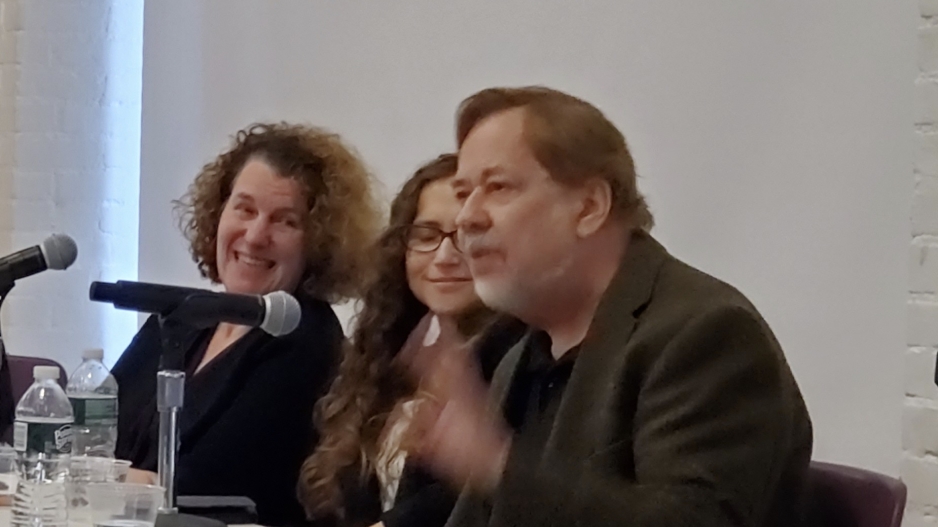
Panelists, Susan Dynarski, Michal Kurlaender, and Paul Attewell, answered audience questions.
Filling out the FAFSA form is more complicated than filing taxes.
The research presented included:
The Value of an Incomplete Degree, Attewell, a professor of sociology and urban education at the City University of New York Graduate Center discussed findings from a quantitative study that found that students who did not complete college had a greater chance of being employed than their peers without a college education.
Broad-Access Postsecondary Institutions and the Democracy of Opportunity, Kurlaender, a professor of education policy at the University of California, Davis, recommended a policy aimed at increasing curricular alignment between community colleges and four-year institutions. She noted that such a policy would decrease students repeating coursework, which can slow academic progress and be an insurmountable financial burden.
Aid Policy: Does it Help or Hinder Economic Mobility? Dynarski, a professor of public policy, education and economics at the University of Michigan, said that the inequality of college degree attainment is not always related to college readiness. "Filling out the FAFSA form is more complicated than filing taxes,” Dynarski said, recommending a policy that would automatically share data between the IRS and the Department of Education to facilitate income verification without requiring additional paperwork from parents.
Related Articles
Principals Share Strategies for Building Strong Schools at Leadership Lens (L2) Event
At a Leadership Lens (L2) event, Lisette Nieves, clinical professor of educational leadership and policy studies, discussed best leadership practices with New York City principals David Russo and Travis Brown.
Teboho Moja, Education Reform Activist, Receives Lifetime Achiever Award
"Policy, academics, and activism have been intersecting paths in my career. It is the driving force behind my passion for education," said Clinical Professor Teboho Moja, who was awarded South Africa's Lifetime Achiever Award for her extraordinary contributions to educational equity in Post-Apartheid, South Africa
NYU Steinhardt Launches New 24-Month Technology Enhanced EdD in Leadership and Innovation
The challenges facing organizations and communities are increasingly complex, requiring solutions that are not confined to one discipline, sector, or industry. Successful leaders look for inspiration in a variety of areas and across sectors to make needed changes.

